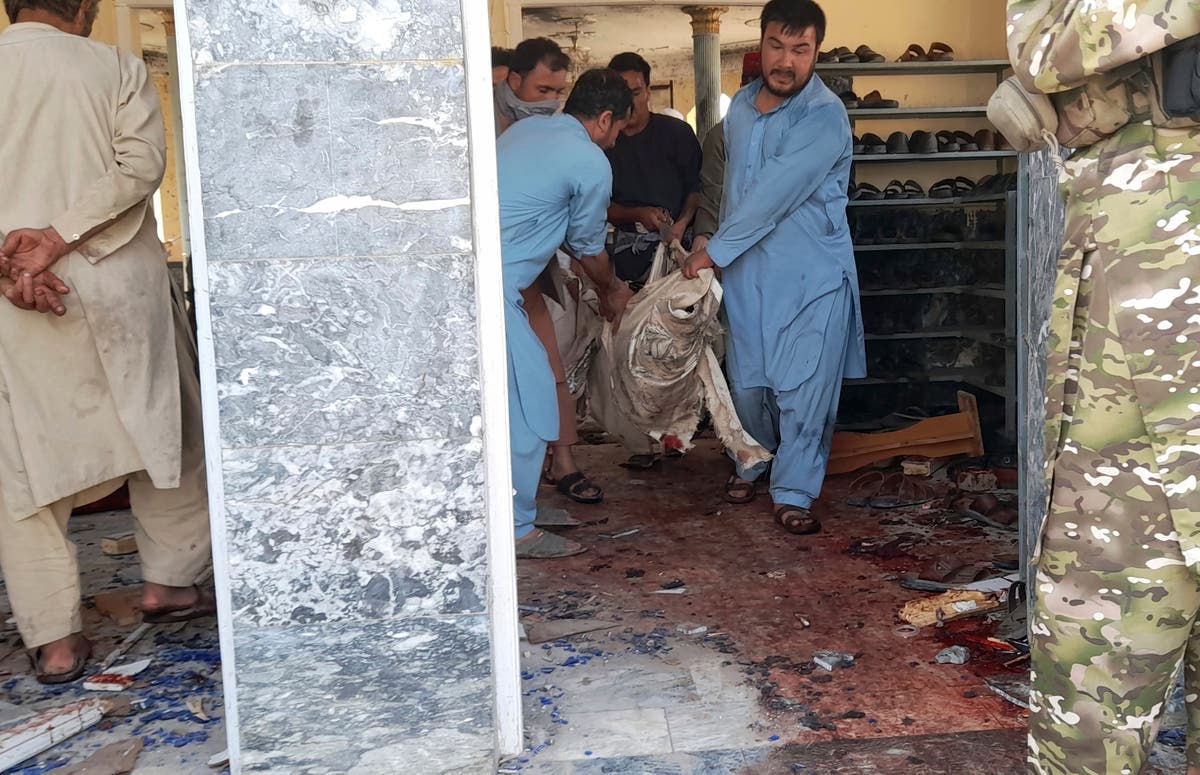
The Islamic State group have claimed responsibility for a deadly suicide attack on a Shia mosque in the Afghan province of Kunduz, which killed at least 46 people.
The claim, carried by the Isis-linked Amaq news agency and cited by the SITE Intelligence Group, which monitors militant postings, came just hours after the blast tore through the packed Gozar-e-Sayed Abad mosque in Kunduz city.
“This afternoon, an explosion took place in a mosque of our Shia compatriots… as a result of which a number of our compatriots were martyred and wounded,” Taliban spokesman Zabihullah Mujahid said on Twitter, adding that a special forces unit had arrived at the scene and was investigating the incident.
According to Afghanistan’s state-run Bakhtar news agency, the attack killed 46 people and wounded more than 140 inside the mosque, but there were reports the death toll could be higher.
While there was confusion about the exact death toll, Mujahid confirmed a “large number” of worshippers were killed and wounded amid confusion over the exact death toll.
Friday’s attack is the deadliest in the country since US and Nato troops left Afghanistan and the Taliban took control of the country at the end of August.
A large number of Muslim worshippers gather in mosques each week to perform Friday prayers, the most important Islamic ritual of the week.
Video footage on social media showed widespread destruction inside the mosque and people moving bodies and wounded worshippers out of the building.
Area resident Hussaindad Rezayee said he rushed to the mosque when he heard the explosion, just as prayers started. “I came to look for my relatives, the mosque was full,” he said.
The United Nations Mission in Afghanistan said the blast was part of a disturbing pattern of violence, after several brutal attacks by Isis on the country’s Shia Muslim minority in the past. It follows other attacks at a mosque in Kabul and a religious school in the province of Khost in recent days.
A prominent Shia cleric, Sayed Hussain Alimi Balkhi, condemned the attack and called on the Taliban to defend the Shia minority in Afghanistan.
“We expect the security forces of the government to provide security for the mosques since they collected the weapons that were provided for the security of the worship places,” he said.
Since they swept to power in August, the Taliban have faced major challenges. The main threat stems from the IS-K organisation, which the Talibs have said they would get under control and have carried out operations against the group’s cells in Kabul.
Meanwhile, Amnesty International has accused the Taliban themselves of massacring and brutally torturing several members of the Hazara minority in Afghanistan in August.







